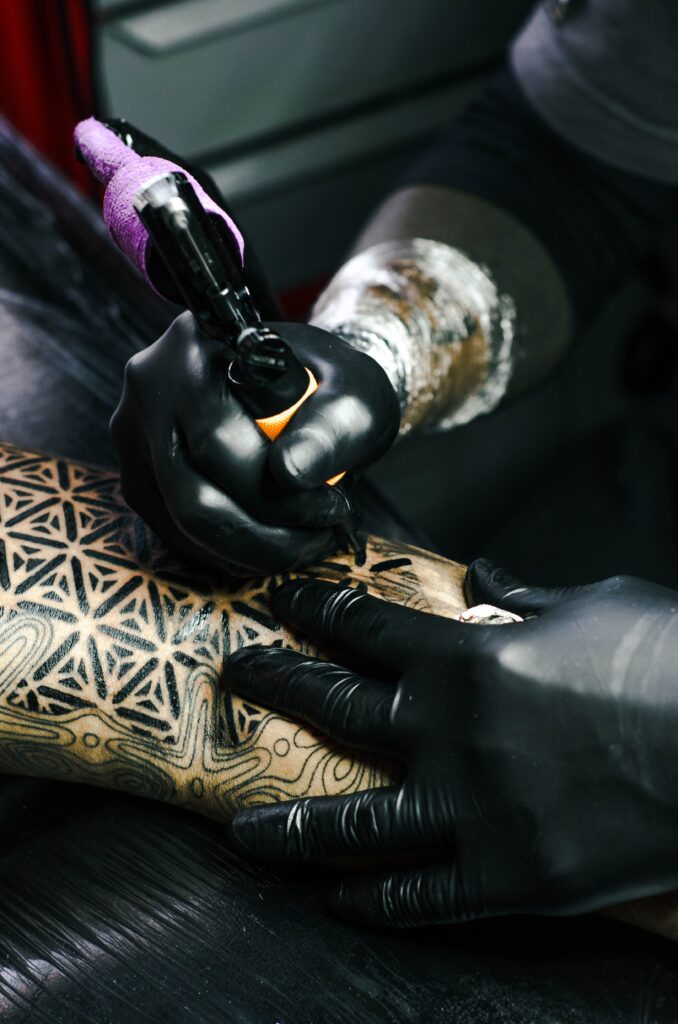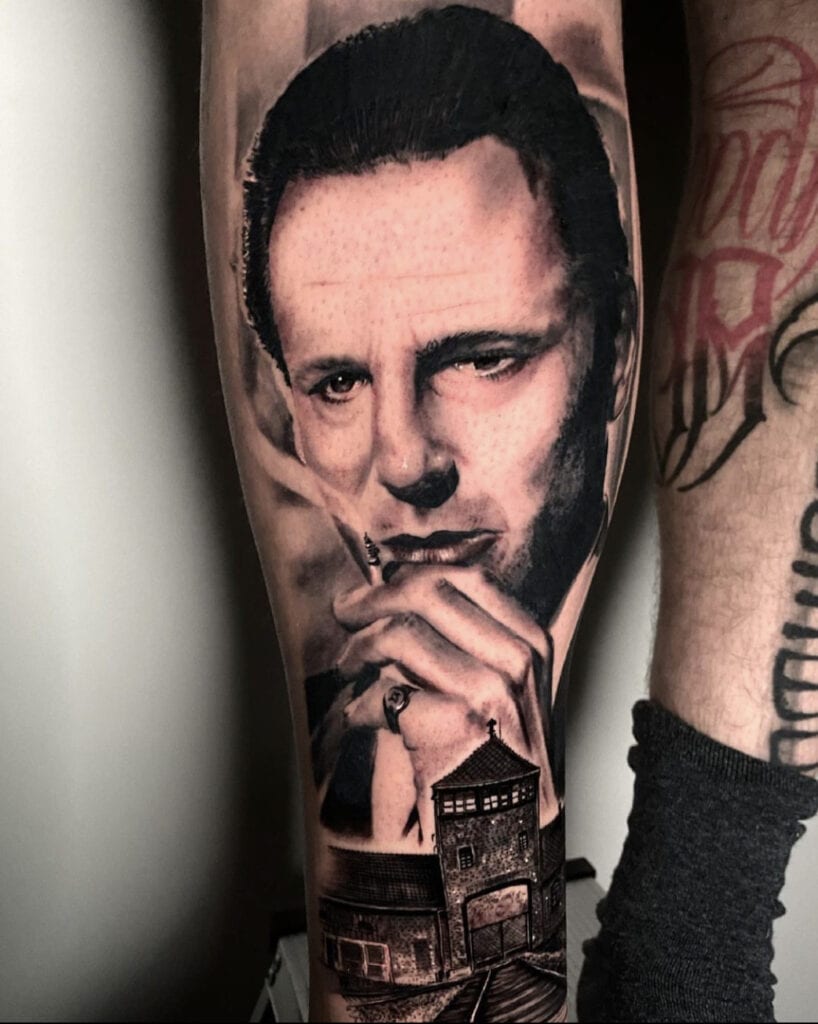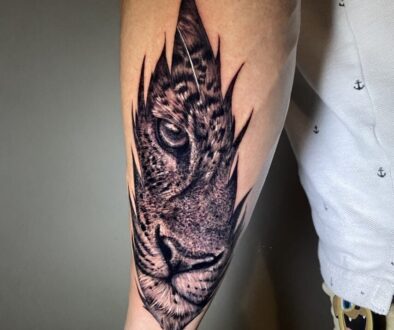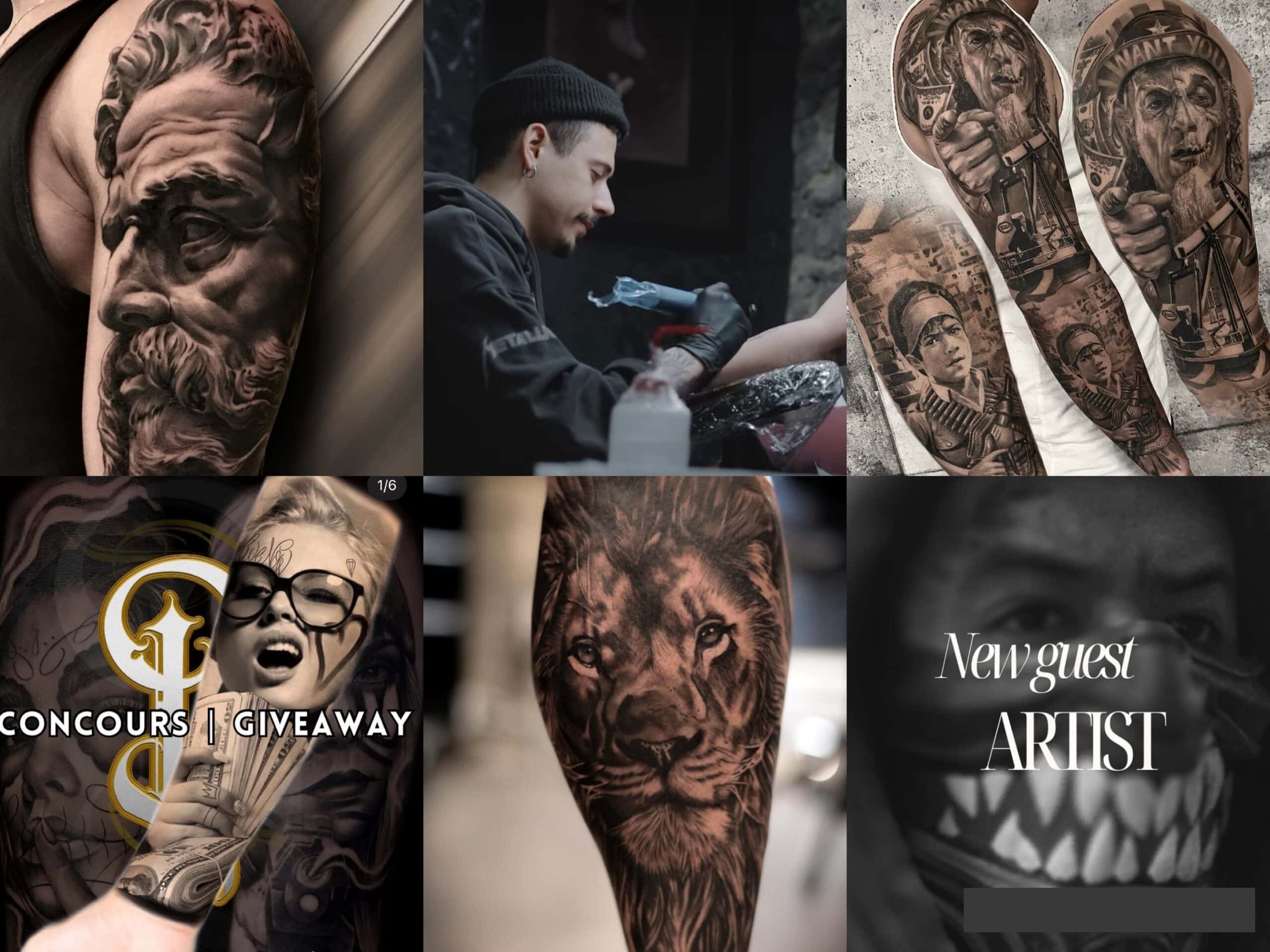Inside the Mind of a Tattoo Artist: Insights from Industry Experts
Introduction
Tattooing has been around for thousands of years, but in recent decades, it has become a mainstream art form that’s gained popularity around the world. And while getting a tattoo might seem like a simple process, there’s actually a lot more that goes into it than meets the eye. At the heart of it is the tattoo artist, whose creativity, skill, and expertise are essential to bringing a client’s vision to life.
But what exactly goes on inside the mind of a tattoo artist? What motivates them to pursue this unique career path, and how do they approach their work? And what challenges do they face along the way?
In this blog post, we’ll delve into the minds of tattoo artists and explore some of the key insights and lessons that they’ve learned throughout their careers. We’ll hear from industry experts, gain an understanding of the creative process, and discover what it takes to succeed in this exciting and dynamic field. So whether you’re a tattoo enthusiast or simply curious about what goes on behind the scenes, read on to discover the fascinating world of tattoo artistry.
What motivates tattoo artists?

Tattoo artists are driven by a wide range of motivations, but there are some common factors that tend to inspire those who pursue this unique and challenging career path. Here are some of the most common motivations that drive tattoo artists:
- A love of art: Many tattoo artists are drawn to the field because they have a deep appreciation for all forms of art. Tattooing allows them to express their creativity in a new and exciting way, using the human body as a canvas for their work.
- A desire for creative expression: Tattoo artists are often passionate about expressing themselves through their work. They enjoy the challenge of taking a client’s ideas and turning them into a unique and personalized tattoo that reflects their style and personality.
- A passion for the craft: Tattooing is a highly technical and specialized skill that requires years of practice to master. For many tattoo artists, the challenge of learning and perfecting this craft is a key motivator.
- A desire to connect with clients: Tattoo artists often form close relationships with their clients, who come to them seeking a meaningful and personal tattoo that has a special significance. For many tattoo artists, the opportunity to help someone tell their story through a tattoo is a deeply rewarding experience.
- A love of the culture: Finally, many tattoo artists are drawn to the tattoo industry because of the unique and vibrant culture that surrounds it. From tattoo conventions to art shows to online communities, there’s always something new and exciting happening in the world of tattooing.
Overall, tattoo artists are motivated by a combination of creative passion, technical skill, and a desire to connect with others through their work. These motivations drive them to push themselves to new heights and to constantly seek out new challenges and opportunities for growth.
How do tattoo artists approach their work?

Tattoo artists approach their work with a unique blend of creativity, technical skill, and client-focused attention to detail. Here’s a look at the creative process that tattoo artists typically go through when working with clients, as well as some of the factors that they consider when designing and executing a tattoo:
- Consultation: The first step in the tattooing process is typically a consultation between the client and the artist. During this meeting, the artist will discuss the client’s ideas and preferences, as well as factors such as the size, placement, and style of the tattoo.
- Design: Once the artist clearly understands the client’s vision, they will begin to create a design for the tattoo. This may involve sketching out the design by hand, using computer software to create a digital mockup or a combination of both.
- Customization: Many tattoo artists will customize their designs to suit the client’s individual preferences and needs. This may involve tweaking the size or placement of the tattoo, adding or removing elements, or adjusting the colour scheme.
- Execution: Once the design is finalized, the artist will begin the process of tattooing the client. This may involve a series of sessions, depending on the size and complexity of the tattoo.
Throughout this process, tattoo artists consider a wide range of factors in order to create a tattoo that is not only beautiful and visually appealing but also functional and long-lasting. Some of the key factors that they consider include:
- Size: The size of the tattoo is an essential factor to consider, as it can affect the level of detail and intricacy that can be included in the design.
- Placement: The placement of the tattoo can also impact the design, as certain areas of the body may be more challenging to tattoo or may require different techniques.
- Style: There are many different tattoo styles to choose from, ranging from traditional to neo-traditional to realism to abstract. The style of the tattoo will often depend on the client’s preferences and the artist’s strengths and expertise.
- Color: The color scheme of the tattoo is another important consideration, as certain colors may fade more quickly than others.
Examples of how different tattoo artists approach their work can vary widely depending on their style and approach. For instance, some artists may focus on realism, using shading and color to create tattoos that look like photographs. Others may specialize in more abstract or graphic designs, using bold lines and bright colors to create striking and unique tattoos.
Overall, tattoo artists approach their work with a combination of technical skill, creativity, and client-focused attention to detail. By considering a wide range of factors and customizing their designs to suit each client’s individual needs, they are able to create tattoos that are not only beautiful, but also meaningful and personal.
What challenges do tattoo artists face?
While tattooing can be a rewarding and fulfilling profession, it also comes with its fair share of challenges. Here are some of the most common challenges that tattoo artists face:
- Managing client expectations: Tattoo artists must be able to communicate effectively with their clients in order to ensure that everyone is on the same page regarding the design, size, placement, and other factors of the tattoo. However, clients may have unrealistic expectations or may change their minds during the tattooing process, which can create difficulties for the artist.
- Dealing with difficult clients: Some clients may be challenging to work with due to a variety of factors, such as nervousness, impatience, or an unwillingness to follow aftercare instructions. Tattoo artists must be able to handle these situations diplomatically and professionally in order to maintain positive relationships with their clients.
- Maintaining a work-life balance: Tattooing can be a demanding and time-consuming profession, and many artists struggle to find a balance between their work and personal lives. This can lead to burnout and other issues if not managed effectively.
Despite these challenges, many tattoo artists are able to find success and satisfaction in their work by developing strategies to overcome these obstacles.
What advice do industry experts have for aspiring tattoo artists?
If you’re an aspiring tattoo artist, you may be wondering what it takes to succeed in this competitive and challenging field. To help you get started, we’ve gathered some insights and advice from industry experts, including veteran tattoo artists and shop owners.
- Build a strong portfolio: One of the most important things you can do as an aspiring tattoo artist is to develop a strong and diverse portfolio that showcases your skills and style. This may include drawings, sketches, and finished tattoo designs, as well as photos of your work in progress and healed tattoos.
- Network with other artists: Tattooing is a community-oriented profession, and it’s important to build relationships with other artists in your area and beyond. Attend tattoo conventions, participate in online forums and groups, and reach out to established artists for advice and mentorship.
- Stay up-to-date on industry trends: The tattoo industry is constantly evolving, with new styles, techniques, and equipment emerging all the time. To stay competitive and relevant, it’s important to stay informed about the latest trends and innovations in the field.
Here are some specific tips and advice from industry experts:
- « Build your skills and your reputation by doing good work, treating your clients well, and being a professional. Reputation is everything in this industry. » – James, a veteran tattoo artist based in San Francisco.
- « Invest in quality equipment and supplies, and don’t cut corners when it comes to safety and hygiene. Your clients deserve the best, and you should take pride in providing them with a safe and comfortable experience. » – Tina, a tattoo shop owner in Seattle.
- « Be patient and persistent. It takes time and hard work to build a successful career in tattooing, but if you stay dedicated and focused, you can achieve your goals. » – Carlos, a tattoo artist based in New York City.
By following these tips and seeking out advice and mentorship from experienced tattoo artists, you can increase your chances of success in this exciting and rewarding profession. Whether you’re just starting out or looking to take your career to the next level, remember to stay focused, stay informed, and stay true to your artistic vision.
Conclusion
Tattooing is a fascinating and dynamic industry that requires a unique blend of artistic skill, technical proficiency, and interpersonal communication. As we’ve seen, tattoo artists face a wide range of challenges and obstacles in their work, from managing client expectations and dealing with difficult clients to maintaining a healthy work-life balance.
However, despite these challenges, tattoo artists continue to be inspired and motivated by their passion for art, their love of the craft, and their desire to create meaningful and lasting works of art on their clients’ bodies. By sharing insights and advice from industry experts and real-world examples of successful tattoo artists, we hope to have provided you with a better understanding of what it takes to succeed in this exciting and rewarding profession.
Whether you’re an aspiring tattoo artist or simply someone who appreciates the art and culture of tattooing, we encourage you to explore this vibrant and ever-evolving industry and to continue to support and celebrate the talented artists who make it all possible. Thank you for reading, and happy tattooing!
FAQs
How long do tattoos usually take?
The time it takes to get a tattoo can vary widely depending on the size, complexity, and placement of the design, as well as the skill and experience of the tattoo artist. In general, small tattoos can be completed in as little as 15-30 minutes, while larger and more intricate designs may take several hours or even multiple sessions to complete. Additionally, the placement of the tattoo on the body can also affect the length of the session, as certain areas (such as the ribs, feet, and hands) may be more sensitive and require more breaks.
What is the creative process that tattoo artists go through when working with clients?
The creative process for tattoo artists typically begins with a consultation with the client to discuss their ideas, preferences, and any relevant factors such as the size, placement, and style of the tattoo. From there, the artist will usually create a sketch or design based on the client’s input and may make revisions or adjustments based on further feedback. Once the design is finalized, the artist will then begin the actual tattooing process, using their technical skills and artistic vision to bring the design to life on the client’s skin.



